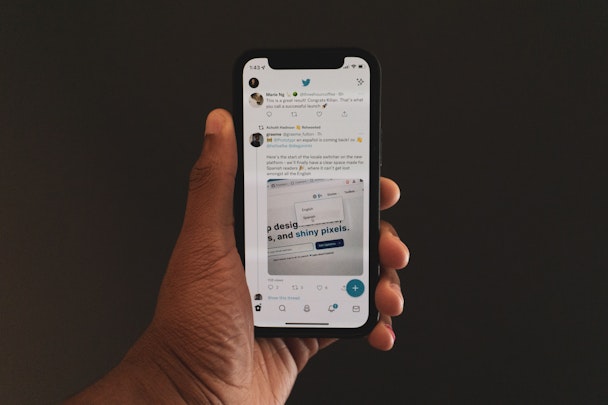What does Twitter tension mean for advertisers?
Is it the end of Twitter as we know it? Amid Muskian chaos, Nick Smith of John Ayling & Associates unpacks what Twitter's new trajectory might mean for advertisers.

How will the monetizing of Twitter affect advertising on the platform? / Terrillo Walls via Unsplash
With all the upheaval at Twitter Towers, the most immediate and obvious question for any advertiser is whether to pause spend. The question implies a temporary decision; it assumes that things will settle down, that common sense will prevail, and we’ll all be back to normal in a few weeks.
But anyone following Elon Musk’s own (sometimes volatile) Twitter account, or his involvement in crypto, or the purchase of Twitter itself, will find the probability of things settling down anytime soon to be unlikely.
The platform for social currency
Musk’s statements to date don’t just threaten commercial use by brands, but the fundamental tenets of the platform. I readily admit, I’m no active Tweeter, but I do read and watch (a lot). It’s my go-to platform for social currency, to find out close to real-time about events relevant to me, often work-related. I'm crowdsourcing to be first informed; to look clever. I’m not alone in this silent majority: just 10% of Twitter users are responsible for 92% of Tweets. The app's user base mostly wants to be informed and in-the-know, whether it's about AdTech or Love Island.
The platform already straddles a fine line between accuracy and agitation; announcements in Musk’s first 10 days indicate that this is only set to deepen. His first money-spinner, pay-to-validate, foresees an opaque soup of the verified and the unverified.
Advertisement
The value of authenticity
Many brands and personalities will question why they should pay for a blue tick, when it is they that form Twitter’s bedrock. Ambiguity around truth is an advertiser’s worst nightmare; we’ve been burnt too many times before. There's an instant reflex to that gut feeling of unease. Why risk it? And, if you devalue the quality of social currency for the news-hungry user base, the trade-off of putting up with the crap to get to the good stuff becomes far less marginal.
Where does Twitter tension leave gen Z?
It’s not just the potential scale of mass user departure that is the worry, it’s who those users are. Twitter is putting a golden goose at risk. Generation Z work the platform hardest - they alone are responsible for nearly half of all Tweets and critically represent both current and future ad revenues.
They are not short of options, you just need to look at the mentions of Mastodon (on Twitter, naturally) or note how TikTok has leap-frogged Twitter in the last 24 months with well over twice as many global users, driven predominantly by under-34s (and it’s highly lucrative). Just last month, TikTok owner ByteDance announced a 5x surge in turnover reflecting that surging user base.
Advertisement
Advertisers can afford to take a loss
Now add 2023 to the mix: the year of consolidation, with marketing budgets in (potentially steep) decline, advertisers are predisposed to finding reasons to pull channels, especially those which play second, or even third fiddle to the big three.
Among recession fears, last month’s report from the Advertising Association/WARC started setting the mood music for what could be a difficult year, with forecasts only set to move backward. Twitter’s instability only exacerbates an already precarious position.
Suggested newsletters for you
Whether Twitter is just a temporary plaything for Musk only time will tell. But the damage already done (and what appears to be on the horizon) will likely to be lasting. Unlike historic boycotts of YouTube and Facebook, this time, brands can afford to lose it.
Advertisers crave consistency: users, accuracy, and authenticity. Economic downturn coupled with management chaos suggests that a pause in advertising might not be so short-lived.
Content by The Drum Network member:

John Ayling & Associates
The media agency that backs the underdog. We back advertisers who face adversity - from competitors with larger budgets and resources to macro socio-economic challenges.
Advertisers...

